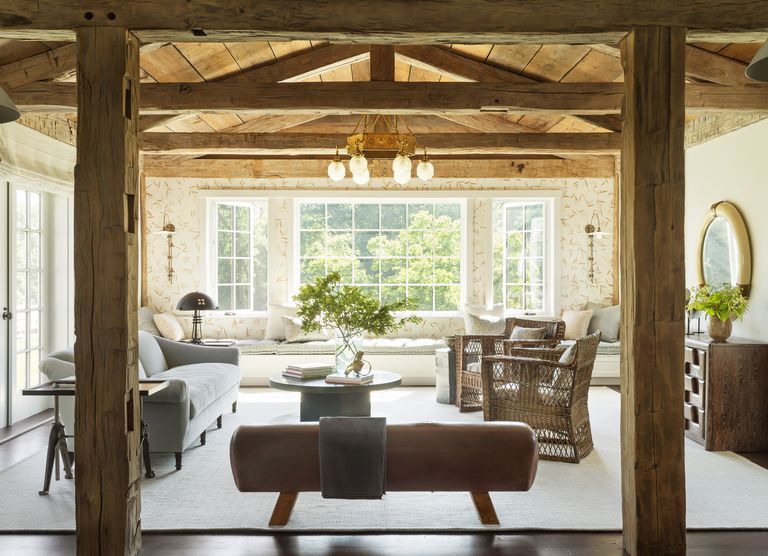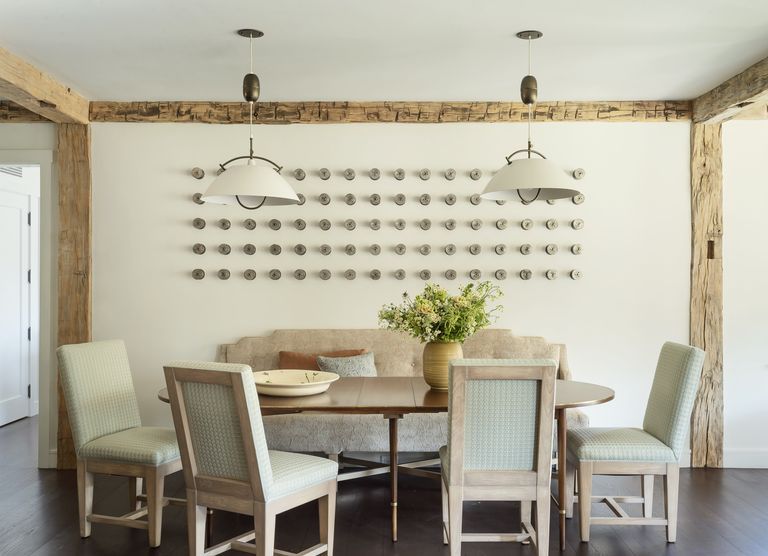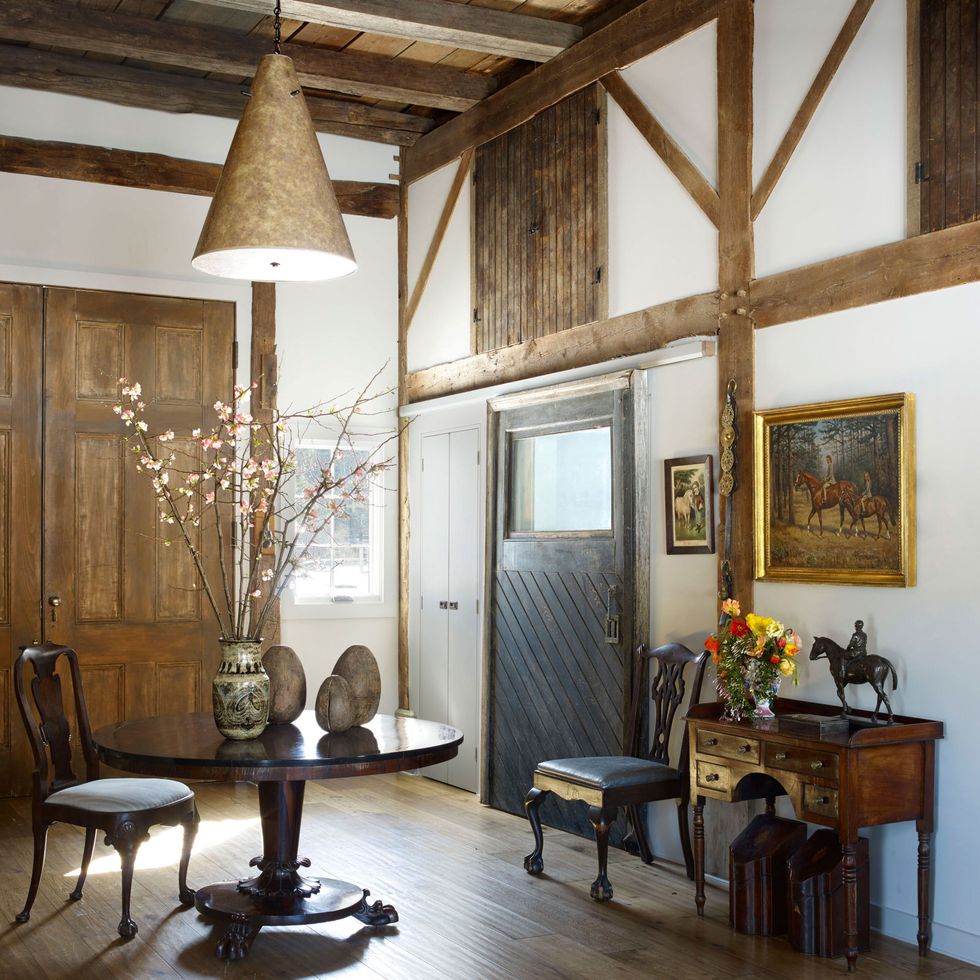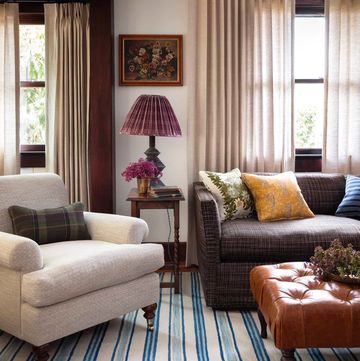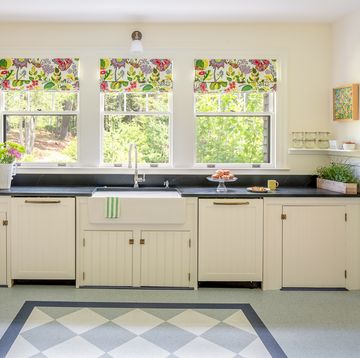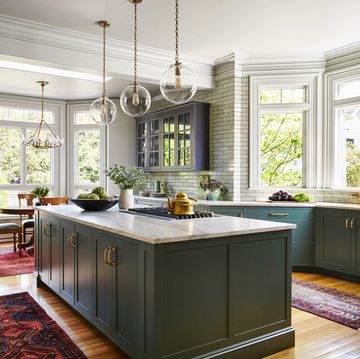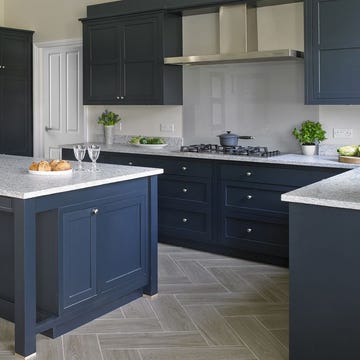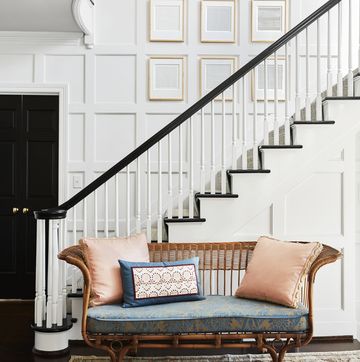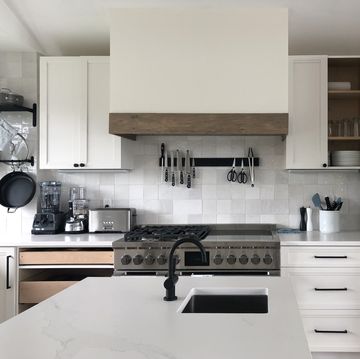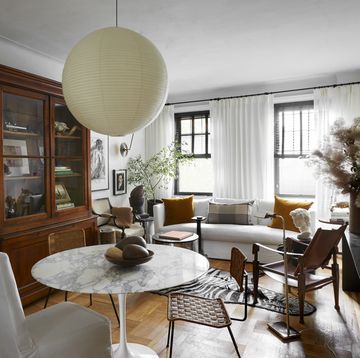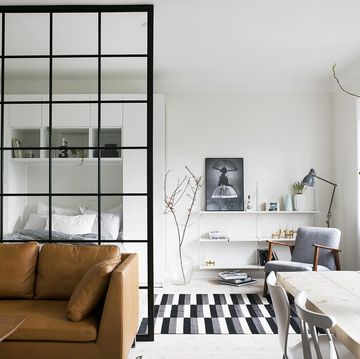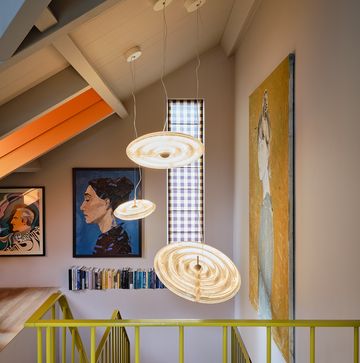Building a home from the ground up means you have a blank slate to infuse with character —whether by way of art, furniture, or finishes. If you’re looking to give your home a historic feel with a rustic touch, use reclaimed wood beams to mimic structural beams on the ceiling. Wait, how? “The first thing to think about is where you want to use them, and what impact you want to try to achieve,” designer James Huniford says. Reclaimed ceiling beams can add warmth and character, yes, but they can also help define a room, and even create a backdrop to hang art on—especially contemporary art, which will create a nice contrast with the beams' timeworn finish.
Where should I put them?
For an energy-efficient new build on Martha’s Vineyard, Huniford used reclaimed ceiling beams in the living room, lanai, and dining room—each adding to the home’s overall feel of a historic inn. (And for good reason: There used to be an old inn on the property that inspired his design.) “I always try to have reclaimed wood ceiling beams placed either on a door opening to frame a room you're walking into, or on the back wall of a room where there’s a sofa, so it can add character or a strong point of view,” he says.
In an 8,000-square-foot barn in Woodstock turned into a one-bedroom guest house, Huniford added ceiling beams to an angled ceiling. The space had ample light but lacked a great view, so the beams gave it some allure.
Another enticing aspect of reclaimed ceiling beams? They’re all different in size, age, and types of wood. “I always try to see a sample of what they look like because they’re all varied, which I think is what makes them appealing to a lot of people,” the designer explains. Adding these to a plain room actually doesn't add any structural value, but if carefully installed they'll appear to have been holding up the ceiling for a century.
Where can I source them?
Google "reclaimed lumber" and your location, to start, or ask your contractor if they know a good source. Tons of businesses have made a market by carefully harvesting wooden beams from historic structures before demolition, then selling those to customers building or renovating their homes. Huniford often works with Vermont Plant Flooring, which collects beams, floorboards, and siding from many 19th- and early 20th-century barns and mills that are being retired and gives them new life.
How are they installed on the ceiling?
Before the beams are installed, they need to be prepped. If you need to run any sprinkler or HVAC lines through the beams, or have them resized, your source or contractor will need to manufacture them before installation, says Mark Dobbin, president of Highline Construction Group. “When done correctly, you will never know if they are true solid beams or remanufactured," he says. Solid beams need to be redried to kill any insects that may be living in the wood, and, depending on the look you’re going for, they can also be hand-hewn and further textured or smoothed.
Once your beams are prepped and ready to adhere, they will essentially be mounted directly to the ceiling joists. "Normally, we embed steel anchors into [the] substructure and blind fasten them through the metal tabs to the substructure,” Dobbin explains.
How long does it take?
As with most home projects, it depends on how big your home is and what you're trying to accomplish with the beams. “It varies with design, but between a half-hour and 1.5 hours per linear foot,” Dobbin says.
How much does it cost?
Again, it'll depend on your specific home, the design, and the price of materials and labor where you live. “High-quality beam stock in white oak is now running about $15 per board foot,” says Dobbin, whose firm is New York City–based. But you also have to factor in drying, manufacturing, engineering, finish, and installation costs. “For example, a remanufactured beam that’s 10 feet by 12 inches will be about $300 to $350 per a linear foot,” he says.
If you're serious about adding reclaimed ceiling beams to your home, it might be smart to do it sooner rather than later. Dobbin predicts that at some point, in 10 years or less, "there will be no more [reclaimed wood] to be had and/or the costs will be tenfold."
Love looking at designer spaces for inspo? Us, too. Let’s obsess over them together.
Follow House Beautiful on Instagram.

Kelly Allen is the current Associate Editor at House Beautiful, where she covers design, pop culture, and travel for digital and the print magazine. She’s been with the team for nearly three years, attending industry events and covering a range of topics. When she’s not watching every new TV show and movie, she’s browsing vintage home stores, admiring hotel interiors, and wandering around New York City. She previously worked for Delish and Cosmopolitan. Follow her on Instagram.
